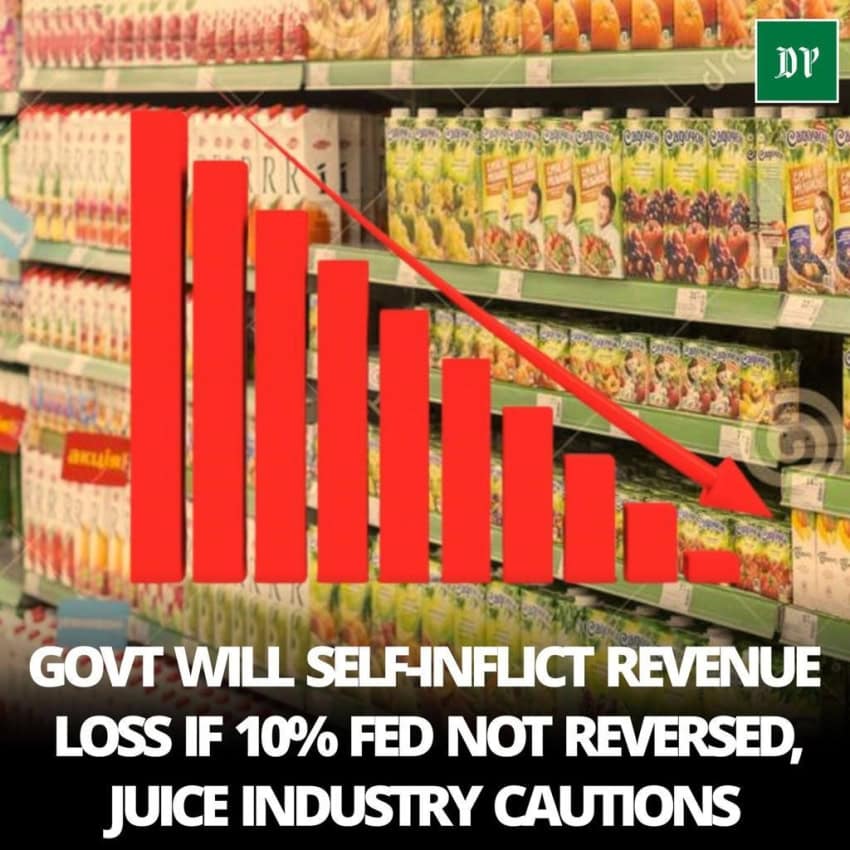Ever since the implementation of 10% FED on juices in February 2023 through the Supplementary Budget, the formal packaged juice industry volumes have plunged by 45% – a significant impact – in the months of March and April 2023. The shrinking business size also means an unfavourable impact on sales tax revenue, as it contributes around PKR 14 billion in tax revenues.
The tax increase on juices has reduced consumption and it is very important to understand that fruit-based juices are promoted as a healthier option by food authorities, especially for consumption in schools and colleges. In line with local regulations (such as Punjab Food Authority), fruit drinks have a minimum of 8% fruit content, nectars have 25%-50% fruit content and pure juices have 100% fruit content. This means a section of the market that was consuming fruits through these juices will now be deprived of them.
This taxation will not only impact industries and their workers but also a range of stakeholders, including fruit growers. Fruits have a high rate of wastage, because of their intrinsic perishability and improper handling, storage, packaging, and transportation. This causes farmers to sell their produce at very low prices, especially during peak seasons. The formal packaged juice industry, by procuring fruits timely prevents significant food wastage and protects farmers’ livelihoods.
The industry has also been helping farmers adopt best practices, which has resulted in the farmers’ uplift and development. These farmers, who supply fruits directly to the juice industry will get impacted due to low levels of demand.
While taxation is indeed a need, it is also very important that the government takes the holistic situation in view while imposing taxation, ensuring that its implementation doesn’t reduce revenues or impact the livelihoods of the grassroots.














